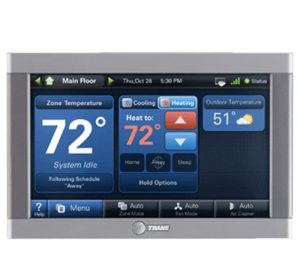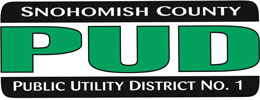The holiday season is coming — and so is the cold and frosty embrace of winter. Finding the right home heating system is at the top of every homeowner’s list.
Several factors should be considered when looking for heating for your home. For instance, you may want to check its initial installation costs, maintenance and repair costs, energy efficiency rating, and unit size — to name a few.
Here at BelRed Energy Solutions, our goal is to help our clients make informed decisions about their home heating systems. In this article, we’ll be taking a look at two of the best high-efficiency heating systems in the market today: boilers vs furnaces.
We’ll discuss what is the difference between boiler and furnace. Additionally, we’ll be giving you tips on how to choose the best system for your home.
What is a Boiler?
Boilers are enclosed vessels used to heat fluids such as water to create vapor or steam. They’re connected to a piping system that circulates the steam throughout a commercial or residential property for various applications like food processing, power generation, or heating.
Boilers have two types: watertube and firetube. The type of boiler you choose will largely rely on what purpose you want it to serve.
Watertube boilers produce higher temperature output, making them ideal for industrial use. Meanwhile, firetube boilers have a more compact construction and lower cost for ownership, making them a great choice for homeowners.
How Does a Boiler Work?
Boilers are popular heating systems used to — yes, you guessed it — boil water. This radiant heating system uses hot water to heat the pipes it travels through and, in turn, heats the area surrounding the pipe system.
Electric boilers use electricity to bring water to an appropriate temperature. Other boiler systems also use oil, gas, and even wood pellets to get the job done.
What is a Furnace?
A furnace is one of the more popular heating systems among homeowners. It’s heating equipment that produces warm air by taking cold air from inside your home and — after a thorough heating process — releases it back into your home as hot air.
Most furnaces use natural gas to produce hot air. However, there are other types such as propane, oil, and electric furnaces that homeowners can choose instead.
How Does a Furnace Work?
There are several types of furnaces, but the most common ones are gas, electric, oil, and propane furnaces.
A natural gas furnace uses has a combustion chamber with a pilot light that ignites a series of burners to create heat. The heat then enters a heat exchanger, where it’s later transferred by the blowers through the pipes and ducts into your home. You can use a thermostat to set the heat to a temperature that suits you. Propane furnaces undergo a similar heating process.
Electric furnaces do things differently than gas and propane furnaces. They have electrical ignitions instead of pilot lights to start the heating process. Additionally, in place of burners, they have conductive coils that generate and maintain heat in the system.
As electrical currents pass through the coils, they begin to produce heat, which is then transferred into the home by blowers.
The Difference Between Boiler and Furnace
The most obvious difference between a boiler and a furnace is that one uses water to heat your house whereas the other uses warm air — but the contrast doesn’t stop there.
Other factors, such as installation requirements, maintenance, and climate control capabilities can also set boilers and furnaces apart.
Keep scrolling to learn more about the differences between boilers and furnaces:
Energy efficiency
Most boilers use less fuel to heat a home than furnaces. Thus, they’re considered to be more energy efficient. According to experts from the US Department of Energy, most modern boiler systems can achieve efficiencies of up to 98.5% — meaning it converts nearly all the fuel it uses into heat for your home.
Modern furnaces may have the same level of energy efficiency as boilers. Unfortunately, for older furnaces, it’s not the same case.
You’ll have to get a new furnace to raise your energy efficiency by 90% — which isn’t always the cheapest choice.
Heat efficiency
Another factor to consider when looking for the right heating system is its heat efficiency:
How fast can it make your home warm?
What is a Radiant Heating system?
Hot water boilers are a type of radiant heating system, supplying hot air directly to the walls and floors of your home. It does this by circulating hot water through a piping system throughout your house. Some homes have radiant heating systems located inside their floors called radiant flooring systems or radiant floor systems.
A boiler system takes much longer to warm your home, especially in sub-zero climates. There’s also a tendency for hot water to freeze in the pipes during winter, which puts homeowners at risk of a burst pipe.
Nevertheless, boilers can produce a more comfortable warmth than furnaces — in the right climate.
What are Forced Air Systems?
A furnace is a type of forced air heating system that warms the air inside your home by “forcing” heated air through a network of ducts spread throughout your home.
It can raise indoor temperature much quicker compared to boilers, and at much higher levels. Since water is inessential to the heating process, there’s less worry of your furnace freezing during sub-zero temperatures.
Unfortunately, as furnaces require a duct system to distribute heat throughout the home, it can create a drafty environment, increasing the spread of dander and dust inside your home. This can be an incredibly uncomfortable situation for families with allergies.
Since a furnace uses natural gas to fuel its functions, there’s also a greater risk of carbon monoxide leaks. A leak can easily cause carbon monoxide poisoning if left unaddressed.
Thus, it’s important to have your furnace systems regularly maintained by professionals.
Noise
If you’ve ever owned a furnace, you’re probably all too familiar with how noisy it can get. A boiler is much softer and quieter, making it an ideal choice for those who don’t enjoy the load clicking and creaking of a furnace.
Installation costs
Natural gas furnaces are significantly cheaper to install than boilers.
A new furnace can cost anywhere between $1,200 to $5,000 to install. On the other hand, a new boiler would cost two to three times more or around $5,000 to $8,000.
Costs will vary depending on what type of fuel your heating system will need, such as electricity, propane, oil, or gas.
Is natural gas better than other alternative fuels?
The use of natural gas is preferred over other fuels as it releases fewer emissions and air pollutants. It’s also much cheaper compared to electricity, propane, and other alternatives.
Maintenance costs
Boilers and furnaces require regular professional maintenance to keep them running efficiently.
As furnaces tend to break down more easily than boilers; thus, it needs more frequent maintenance.
Boilers are much less likely to break down, meaning they require less attention and less maintenance.
Furnace or Boiler: Which is Better at Producing Warm Air?
So, which heating solution should you choose to provide heat for your home: furnace or boiler?
Well, the answer ultimately depends on your budget and location.
High-efficiency boilers are much more energy efficient. Since it uses hot water to warm your home, it also creates a much more comfortable environment. A boiler also offers better air quality in your home.
Unfortunately, a boiler costs a lot more during initial installation — plus, it runs the risk of freezing under sub-zero temperatures.
A boiler also requires more space compared to a furnace.
Meanwhile, a furnace is much cheaper to install and takes up less space compared to a boiler. Since it doesn’t require hot water to heat your home, you can avoid the risk of your home’s duct system freezing during the winter months, too.
We Can Help You Find the Right Solution
Choosing between a furnace or boiler is tough. Both are highly efficient systems; nevertheless, each of them has advantages and drawbacks you need to be aware of.
The right system can help improve the indoor air quality and comfort of your home. Choosing the wrong one could mean thousands of your hard-earned money down the drain.
We can help you find the ideal option for your home!
Professional HVAC Maintenance and Repair
When it comes to furnaces and boilers, we at BelRed Energy Solutions pride ourselves on our expertise and skill. We’ve helped thousands of our customers improve the air quality and comfort of their homes, with the assistance of our highly-skilled technicians.
Furnaces and boilers require annual service to maintain optimum functionality — it can also significantly extend your equipment’s life expectancy. Our HVAC professionals are trained in the latest methodologies and techniques to ensure effective and efficient services for our clients.
Whether you’re looking for furnace repair or heat pump installation services, you can rely on us to do the job right.
Contact our office today to learn more about our services and other offers.
Call (855) 345-6161
We look forward to serving you!







